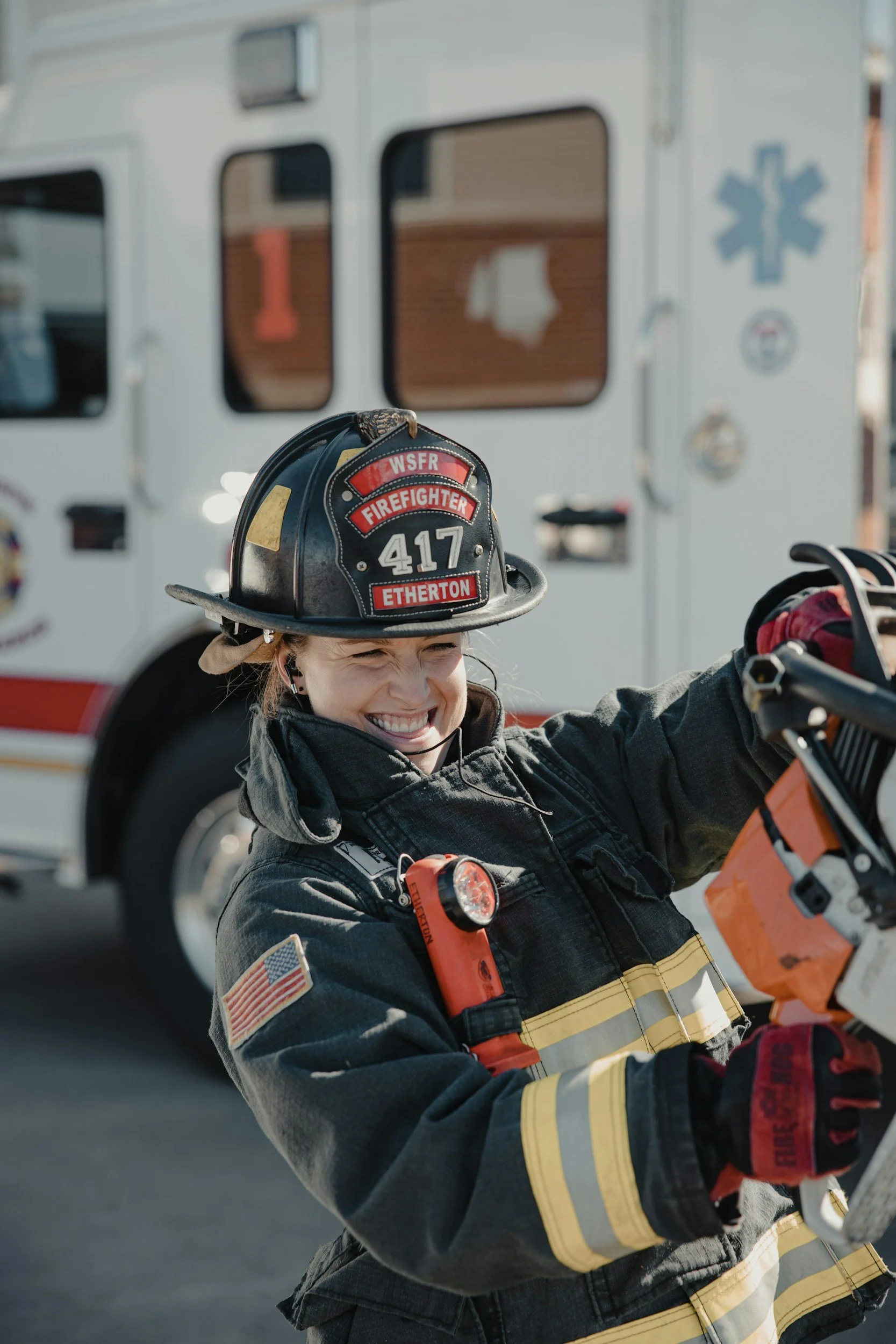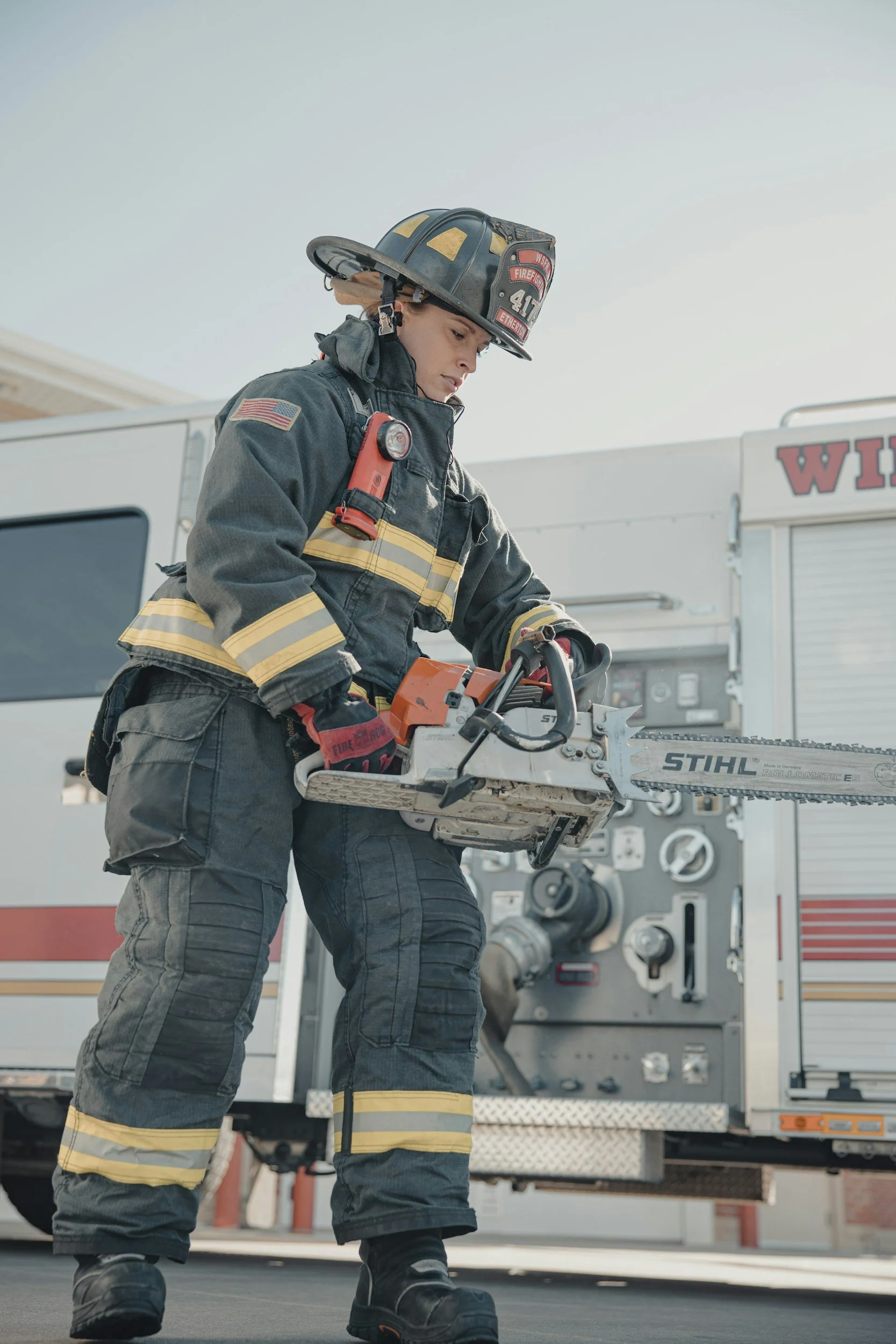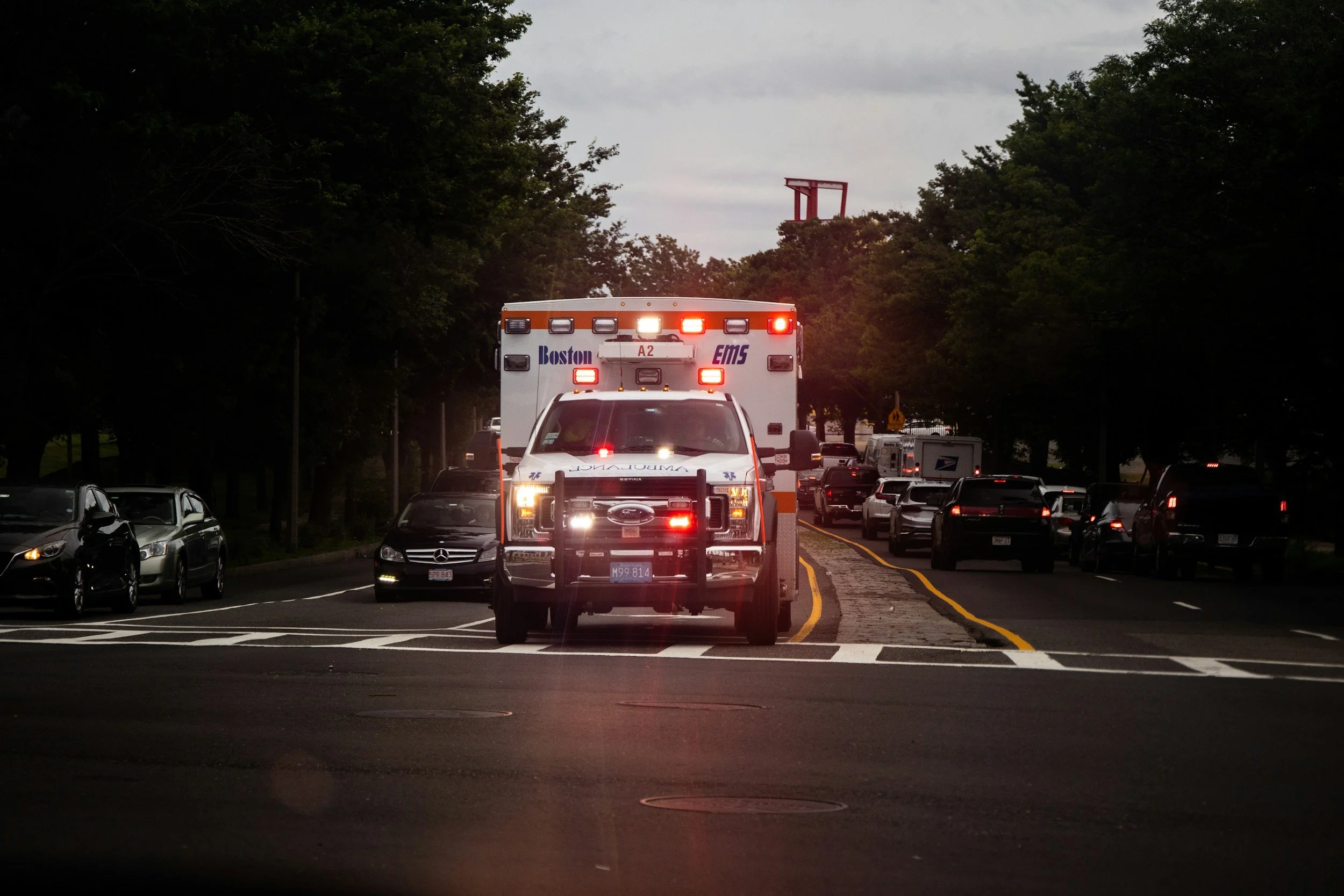
Breaking Through: A Guide for Female First Responders in Recovery
You Are Not Alone in This Fight
As a female first responder, you've dedicated your life to protecting and serving others. You've faced dangers that most people never encounter, made split-second decisions under immense pressure, and carried the weight of your community's safety on your shoulders. But what happens when the person who needs protecting and serving is you?
If you're reading this, you've already taken the most courageous step—acknowledging that you need support. Whether you're struggling with substance use, mental health challenges, or both, know that seeking help isn't a sign of weakness. It's a sign of the same strength that got you through academy training, your first day on the job, and every difficult call since.

Reclaiming Yourself: Navigating Identity and Role Conflicts in Recovery
When Your Shield Becomes Your Cage
You've worn your badge, uniform, or gear with pride. It represents years of training, countless hours of service, and a commitment to something greater than yourself. But what happens when the very identity that gives your life meaning begins to feel like a prison? When the person you've always been—the protector, the helper, the one others depend on—seems incompatible with the person you need to become to heal?
If you're a female first responder entering recovery, you're facing one of the most complex challenges in your journey: reconciling who you've always been with who you need to become. This isn't just about changing behaviors or learning new coping skills—it's about fundamentally examining and reshaping your sense of self.

Finding Your Tribe: Navigating Peer Support Challenges in Recovery
The Loneliness of Being the Only One
You've always known you were different in your department. Walking into roll call, suiting up for shift, or responding to calls, you've often been the only woman—or one of very few. This reality has shaped your career in countless ways, and now, as you embark on your recovery journey, it's creating new challenges you never anticipated.
Peer support is universally recognized as one of the most powerful tools in recovery. There's something irreplaceable about connecting with someone who truly understands your experience, who's walked in your boots, who knows the weight of the badge you carry. But what happens when those peers are predominantly male, and the support structures weren't designed with your specific needs and experiences in mind?
If you're a female first responder seeking recovery support, you're facing a complex landscape of peer relationships, departmental cultures, and support systems that may not fully recognize or address your unique challenges. This doesn't mean support isn't available—it means you may need to be more intentional and creative in finding and building the peer connections that will sustain your recovery.

Breaking the Cycle: Understanding Trauma, Coping, and Recovery
When Your Badge Comes Home With You
At the end of your shift, you don't just clock out and go home—you transition from one demanding job to another. While your male colleagues might head home to decompress, grab a beer, or hit the gym, you often walk through your front door to find dinner prep waiting, homework to supervise, elderly parents to check on, or a spouse who's been handling everything solo and needs a break.
You've spent your shift protecting and serving your community, and now you're expected to protect and serve your family with the same dedication and competence. But who's protecting and serving you? And when do you find time for the recovery work that's essential for your mental health, sobriety, and overall wellbeing?
If you're a female first responder trying to balance recovery with the double demands of work and home caregiving, you're facing one of the most challenging aspects of early recovery. The statistics tell a story you know all too well: women, regardless of profession, handle approximately 70% of household tasks and caregiving responsibilities. Add the unpredictable, high-stress nature of first responder work, and you have a perfect storm of competing priorities that can derail even the most committed recovery efforts.